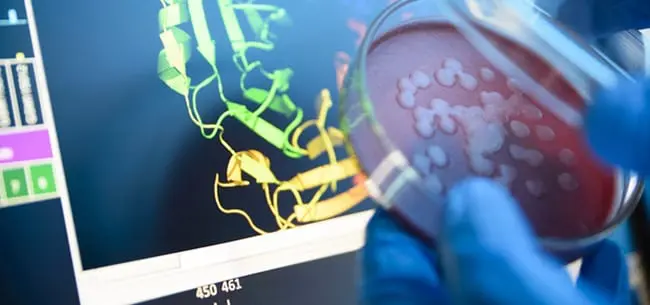
Editor: Draco Copper | Tactical Investor
The Revolution of Healthcare and Medicine: AI’s Impact on the Horizon
Aug 20, 2023
In recent years, the convergence of Artificial Intelligence (AI) and medicine has paved the way for a transformative revolution in healthcare. Integrating AI technologies into medical practices can redefine diagnostics, treatment, and patient care. This essay explores how AI is poised to revolutionize healthcare and medicine, with illustrative examples that highlight its impact across various subtopics.
AI Medicine In Diagnostics and Early Detection
AI-driven diagnostics are set to revolutionize healthcare by enhancing accuracy and speed. Machine learning algorithms can analyze vast datasets to identify patterns and anomalies that might escape human observation. For instance, IBM’s Watson for Oncology has been shown to assist oncologists in identifying potential treatment options by analyzing patient data and recommending personalized therapies. This AI system has been used in various hospitals and cancer centres worldwide, including Memorial Sloan Kettering Cancer Center in New York.
Another example of AI in diagnostics is using deep learning algorithms to analyze medical images. These algorithms can detect subtle abnormalities and assist radiologists in making accurate diagnoses. For instance, Aidoc, an AI-powered radiology platform, uses deep learning algorithms to analyze CT scans and flag potential abnormalities, such as intracranial haemorrhages or pulmonary embolisms. This technology has been implemented in hospitals like Sheba Medical Center in Israel, where it has helped radiologists improve efficiency and accuracy in diagnosing various conditions.
AI is also being utilized in the field of pathology to aid in the early detection of diseases. Pathologists often examine tissue samples under a microscope to identify abnormalities, but this process can be time-consuming and subjective. AI algorithms can analyze digital pathology images and assist pathologists in detecting cancerous cells or other abnormalities. For example, Paige.AI, a company specializing in computational pathology, has developed AI algorithms that can analyze digital slides and provide insights to pathologists. This technology has been used in research institutions and hospitals, such as Memorial Sloan Kettering Cancer Center, to improve diagnostic accuracy and efficiency.
AI Medicine and Personalized Treatment Plans
Artificial Intelligence (AI) is transforming the healthcare landscape, particularly in personalized treatment plans. By leveraging AI’s advanced analytical capabilities, medical professionals can create highly individualized treatment strategies considering a patient’s unique genetic makeup, environmental influences, and lifestyle habits. This approach is a significant departure from the traditional one-size-fits-all model, marking a new era in precision medicine.
One of the most compelling examples of this is the DeepMind AI project. This groundbreaking initiative has remarkably succeeded in predicting patient deterioration in hospital settings. By analyzing a vast array of patient data, including medical history, current health status, and genetic information, DeepMind can anticipate potential health risks and complications. This predictive capability allows healthcare providers to intervene proactively, improving patient outcomes and potentially saving lives.
Moreover, AI’s role in personalized medicine extends beyond hospital settings. For instance, AI can help manage chronic conditions like diabetes by creating customized diet and exercise plans based on patients’ specific needs and preferences. Similarly, AI can analyze patterns in a patient’s behaviour and mood in mental health care to tailor therapeutic interventions.
In cancer treatment, AI can analyze tumour characteristics at a molecular level, enabling the development of personalized oncology treatments. For example, IBM’s Watson for Oncology uses AI to diagnose a patient’s medical information and compare it with a vast database of clinical studies and medical literature to recommend individualized treatment options.
AI Medicine in Drug Discovery and Development
AI has been a game-changer in the field of drug discovery and development. It has the potential to reduce the time and cost associated with these processes significantly.
Atomwise, a leading company in this field, uses AI to predict the binding affinities of molecules. This is done by analyzing vast databases of molecular information. The AI system can identify potential drug candidates much faster than traditional methods. This is because it can process and analyze large amounts of data in a fraction of the time it would take a human.
In addition to Atomwise, there are other companies like Exscientia, BenevolentAI, and Insilico Medicine that are also using AI to revolutionize drug discovery. These companies use AI to analyze medical and biological data to identify potential drug candidates. They also use AI to predict how these drugs will interact with the body and to optimize their chemical structures to improve their effectiveness and reduce side effects.
AI is also being used in the development phase of drugs. It can help design clinical trials, predict patient responses, and monitor patient health during trials. This can lead to more efficient and successful trials, reducing the time and cost of drug development.
Robotic Surgery and Precision:
AI-powered robotic surgery is indeed revolutionizing the medical field. For instance, the da Vinci Surgical System is a prime example of this advancement. It’s a robotic surgical system that facilitates complex surgery using a minimally invasive approach. The system is controlled by a surgeon from a console and is known for its precision, dexterity, and control.
The da Vinci system allows surgeons to perform delicate and complex operations through a few small incisions. The system enhances visualization, precision, control, and dexterity. It can magnify the surgical site up to 10 times, providing surgeons with a highly detailed, 3D view of the area. This leads to improved outcomes, reduced risk of infection, less blood loss, and quicker recovery times.
Moreover, AI is being integrated into these systems to enhance their capabilities further. For instance, AI can help in preoperative planning by using machine learning algorithms to analyze previous similar cases and predict the best surgical approach. During the operation, AI can assist in real-time decision making, providing surgeons with data-driven insights.
In the future, we can expect AI-powered robotic surgery to continue to evolve, with advancements in machine learning and robotics leading to even more precise and less invasive surgical procedures.
AI Medicine In Disease Monitoring and Predictive Analytics:
Artificial Intelligence (AI) has revolutionized disease monitoring, making it more efficient and proactive. AI-powered wearable devices, such as smartwatches and fitness trackers, can now continuously monitor an individual’s vital signs, including heart rate, blood pressure, and oxygen levels. These devices can detect abnormal patterns or deviations from the norm, alerting the user and their healthcare provider.
For instance, Apple Watch’s ECG feature can detect irregular heart rhythms indicative of conditions like atrial fibrillation. Similarly, devices like Fitbit can monitor sleep patterns, helping to identify sleep disorders. AI algorithms can analyze the data collected by these devices, identifying trends and patterns that the human eye might miss. This continuous, real-time monitoring can lead to early detection of potential health issues, allowing for prompt intervention and treatment.
Predictive Analytics
Predictive analytics in healthcare leverages AI to forecast potential health complications before they become critical. It uses machine learning algorithms to analyze vast amounts of data, including patient history, genetic information, and lifestyle factors, to predict the likelihood of disease occurrence or progression.
For example, Google’s DeepMind Health project uses AI to predict acute kidney injury up to 48 hours before it happens, potentially saving lives. Similarly, IBM Watson Oncology uses AI to analyze a patient’s medical records and provide personalized treatment recommendations based on predictive analytics.
Predictive analytics can also be used in managing chronic diseases. For instance, AI can predict blood sugar levels in diabetic patients based on their food intake, physical activity, and medication, helping them manage their condition more effectively.
Telemedicine and Remote Patient Care
Powered by AI, telemedicine has emerged as a game-changer in the healthcare industry, especially in the wake of the COVID-19 pandemic. It allows healthcare professionals to consult with patients remotely, using video conferencing or mobile apps. This not only expands access to healthcare services, especially for those in remote or underserved areas but also reduces the need for in-person visits, saving time and resources.
For example, platforms like Teladoc and Doctor on Demand use AI to connect patients with healthcare professionals for virtual consultations. These platforms can handle various health issues, from minor ailments like colds and flu to chronic conditions like diabetes and heart disease. They can also facilitate virtual mental health consultations, making therapy more accessible.
Remote Patient Care:
AI also plays a crucial role in remote patient care, particularly for patients with chronic conditions. AI-powered devices can monitor patients’ health in real-time, sending data to healthcare providers for analysis and intervention. This allows for continuous care, even when the patient is at home.
For instance, companies like Medtronic offer AI-powered glucose monitors for diabetic patients. These devices continuously monitor blood sugar levels and send the data to the patient’s healthcare provider, enabling them to adjust treatment plans as needed.
Chatbots and Virtual Assistants:
AI-driven chatbots and virtual assistants are transforming patient experiences. They can provide medical information, answer patient queries, and even schedule appointments, reducing the workload on healthcare professionals.
For example, Buoy Health’s AI chatbot uses machine learning to understand a patient’s symptoms and provide potential diagnoses. Similarly, the virtual assistant developed by Babylon Health can answer medical questions and book appointments, making healthcare more accessible and efficient.
In conclusion, AI is reshaping telemedicine and remote patient care, making healthcare more accessible, efficient, and patient-centric. It’s not just about treating patients anymore; it’s about empowering them to take control of their health.
Radiology and Medical Imaging
Artificial Intelligence (AI) is making significant strides in the field of radiology, enhancing the speed and accuracy of image analysis. AI algorithms, such as X-rays, CT scans, and MRIs, can process and interpret complex radiological images much faster than humans. This reduces the workload for radiologists and minimizes the chances of human error.
For instance, Aidoc, an AI radiology company, provides advanced real-time solutions to analyze radiological images, identifying critical conditions like strokes, pulmonary embolisms, and cervical spine fractures. This allows for faster diagnosis and treatment, potentially saving lives.
Medical Imaging:
AI’s role in medical imaging extends beyond radiology. Deep learning algorithms can detect subtle abnormalities in medical images that the human eye might miss. This can aid in the early detection of various conditions, including cancer and cardiovascular disease.
For example, Google’s DeepMind has developed an AI system that can analyze eye scans to detect signs of age-related macular degeneration and diabetic retinopathy, two leading causes of blindness. Similarly, Zebra Medical Vision uses AI to analyze CT scans for signs of lung cancer, providing early detection and improving patient outcomes.
Moreover, AI can also help in predicting the progression of diseases. For instance, HeartFlow uses AI to create a personalized 3D model of a patient’s heart, assisting doctors to understand the impact of blockages and plan treatments accordingly.
In conclusion, AI’s application in radiology and medical imaging revolutionises healthcare, making diagnosis faster, more accurate, and personalized. It’s not just about detecting diseases any more; it’s about understanding them better and treating them more effectively.
AI Medicine: Advancing Genomic Analysis for Precision Healthcare”
Artificial Intelligence (AI) has become a powerful tool in genomic analysis, capable of processing and interpreting vast amounts of genetic data. AI algorithms can identify genetic markers, or specific sequences in the DNA, associated with certain diseases. This can lead to early detection and prevention of these diseases.
For example, Deep Genomics uses AI to predict the impact of genetic mutations on disease development. Their platform can identify mutations that might lead to diseases like cystic fibrosis or muscular dystrophy, allowing for early intervention.
Similarly, companies like 23andMe use AI to analyze genetic data and provide personalized health reports. These reports can reveal a person’s genetic predisposition to certain conditions, such as Parkinson’s disease or type 2 diabetes, helping them take preventive measures.
Precision Medicine:
The insights gained from AI-driven genomic analysis are paving the way for precision medicine, a new approach to healthcare that tailors treatment to an individual’s unique genetic makeup. Precision medicine aims to design interventions that are most likely to work for a particular individual, reducing trial and error and improving treatment outcomes.
For instance, Tempus uses AI to analyze clinical and molecular data, helping doctors make personalized treatment decisions for cancer patients. Their platform can identify genetic mutations associated with a patient’s cancer and suggest targeted therapies that are most likely to be effective.
Similarly, companies like Genomic Health use AI to develop genomic tests that can predict a patient’s response to certain treatments. For example, their Oncotype DX test can predict the likelihood of breast cancer recurrence and the benefit of chemotherapy, helping doctors and patients make informed treatment decisions.
In conclusion, AI’s role in genomic analysis and precision medicine is transforming healthcare, making it more personalized and effective. It’s not just about treating diseases anymore; it’s about understanding an individual’s unique genetic makeup and designing interventions that are most likely to work for them.
AI Medicine Conclusion: Shaping Healthcare’s Future
Artificial Intelligence (AI) is undeniably transforming the landscape of healthcaree, ushering in a new era of AI medicine. From disease monitoring and predictive analytics to telemedicine and remote patient care, AI is making healthcare more proactive, personalized, and accessible.
In disease monitoring, AI medicine enables real-time tracking of vital signs, leading to early detection and intervention. Predictive analytics, another facet of AI medicine, is forecasting potential health complications, allowing for preventive measures and timely treatment.
Telemedicine, powered by AI, is expanding access to healthcare services, breaking geographical barriers. AI’s role in remote patient care is to ensure continuous monitoring and care, even outside the traditional healthcare setting. AI-driven chatbots and virtual assistants ease the burden on healthcare professionals and enhance patient experiences.
AI medicine is also revolutionizing radiology and medical imaging. It’s expediting image analysis, improves diagnostic accuracy, and aiding in the early detection of conditions like cancer and cardiovascular disease.
In the field of genomic analysis, AI medicine is processing vast genomic datasets, identifying genetic markers and potential disease risks. This is paving the way for precision medicine, where interventions are tailored to an individual’s unique genetic makeup.
In conclusion, AI medicine is not just about treating diseases; it’s about predicting, preventing, and personalizing healthcare. It’s about empowering patients and healthcare professionals alike, making healthcare more efficient and effective. As AI continues to evolve, we can expect even more groundbreaking advancements in AI medicine, transforming the future of healthcare.










